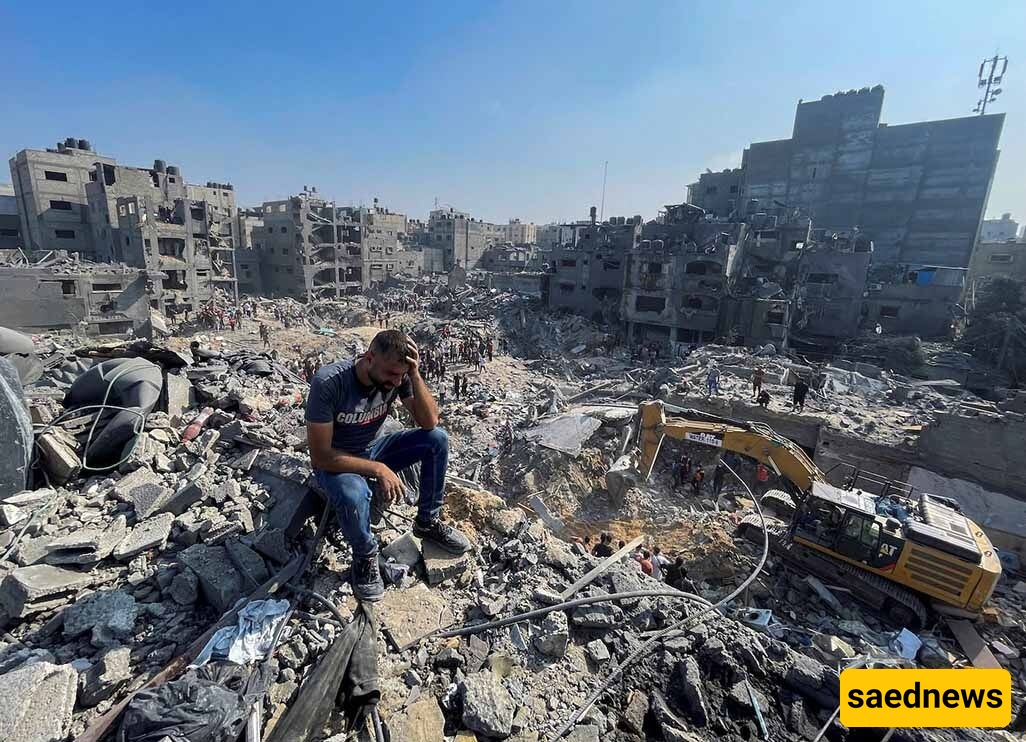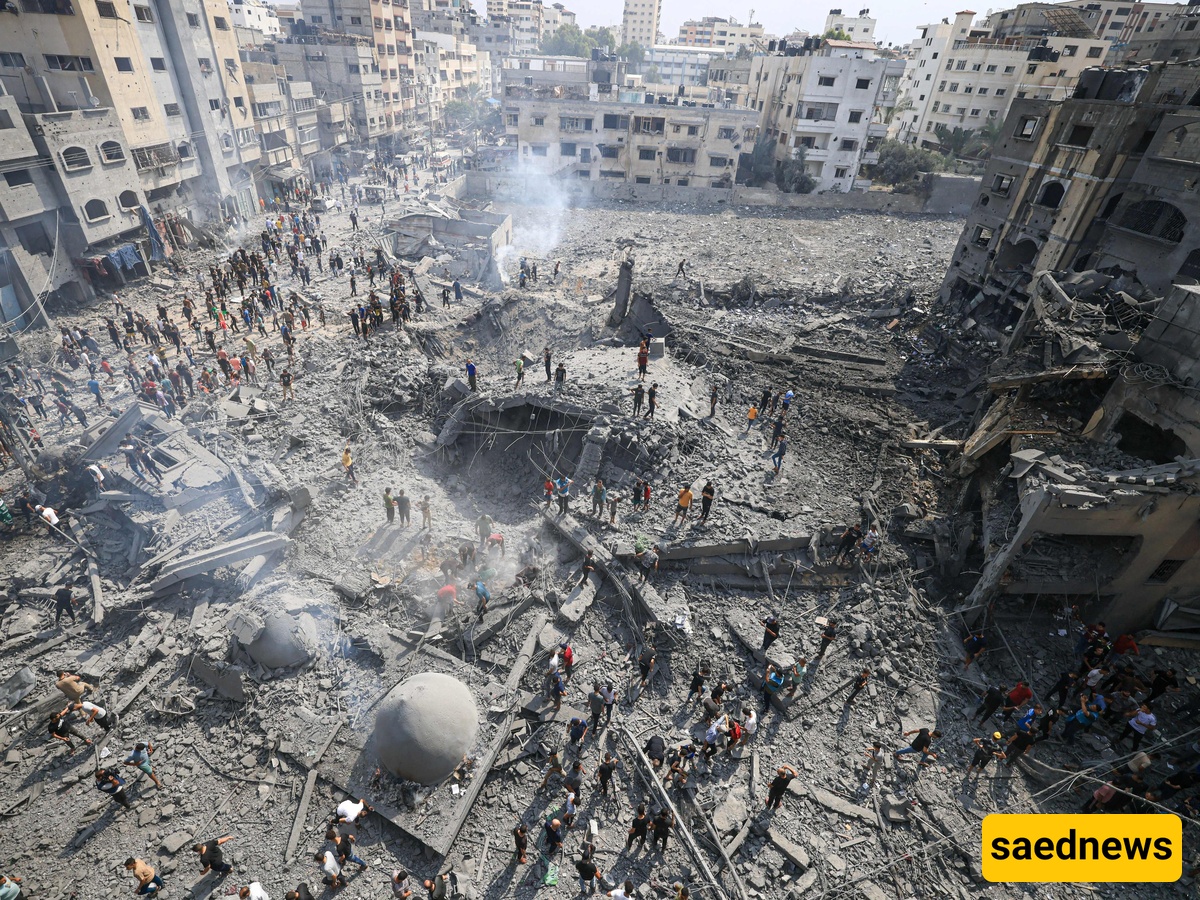SAEDNEWS: Israel’s plan for full military control of Gaza City has drawn swift condemnation from Arab capitals and the international community, with governments calling it a clear breach of international law and a threat to Middle East peace.

According to Saed News, citing Deutsche Welle, the Israeli government’s recent decision to advance and take full control of Gaza City—although presented as part of the country’s military strategy—has met with unprecedented reactions at both regional and global levels. Arab states including Egypt, Jordan, Saudi Arabia, the UAE, and Qatar have publicly condemned the move, describing it as “entrenching the occupation” and “an attempt to impose a new reality on the ground.” These countries stressed that such action would effectively undermine the two-state solution that the international community has long sought to achieve, while pushing Gaza’s humanitarian crisis into an even more dangerous phase.

The reactions have not been confined to soft diplomacy. Turkey, in harsher language than others, labelled the move a “blatant act of aggression” and called for an emergency meeting of the Organisation of Islamic Cooperation to form, in Ankara’s words, “a unified voice” from the Islamic world in the face of this crisis. Regional analysts view this stance as part of Turkey’s ongoing bid to cement its position as a symbolic leader of the Muslim world, while acknowledging that aligning the conflicting policies of Arab and Islamic states will be no easy task.
The European Union and several Western governments, including Germany, Belgium, and the Netherlands, have also stepped in. They have warned of the humanitarian and legal repercussions of the decision, stating that any unilateral change to Gaza’s status violates international law. Belgium went a step further by summoning Israel’s ambassador to formally lodge its protest. Although these reactions have so far remained at the level of statements and diplomatic posturing, they underline the issue’s high sensitivity in international relations.
Despite this wave of condemnation, Israel does not appear to be backing down. Sources close to Prime Minister Benjamin Netanyahu’s cabinet say the plan is part of a broader strategy for the “complete elimination” of Palestinian armed groups in Gaza and the creation of a “security buffer zone.” However, Israeli domestic critics, including some former military commanders, have warned that the move is not only operationally costly and risky but could also increase international pressure and political isolation. Families of Israeli hostages still held by Palestinian groups also fear that this approach will stall prisoner-exchange negotiations.
On the ground, reports from Gaza paint a grim picture. After months of fighting, much of the city’s infrastructure lies in ruins, access to water, electricity, and healthcare is severely restricted, and shortages of food and medicine are threatening thousands of lives. International aid agencies have warned that any escalation of military operations in Gaza would push the humanitarian disaster to unprecedented levels. Meanwhile, the closure of key humanitarian aid routes has deepened the crisis, raising the risk of famine in some areas.
Middle East analysts believe that while the sharp Arab reactions show the sensitivity of the issue, they are unlikely to alter Israel’s course unless backed by concrete action. Past experience has shown that Israel rarely changes direction in the face of verbal condemnation alone—real economic, diplomatic, or military pressure would be needed. In this context, a unified coalition of Arab and Islamic states, possibly with the support of some Western governments, could serve as a significant deterrent.
However, political and security divisions among Arab states—especially differences over relations with Israel—pose a major obstacle to such unity. Some countries, such as the UAE and Bahrain, which normalised relations with Israel under the “Abraham Accords,” have issued more moderate statements, focusing more on the humanitarian aspects of the crisis than on direct criticism of Tel Aviv. This divergence in tone and approach leaves Israel with greater room to press ahead and may reduce condemnations to largely symbolic gestures.
From another perspective, Israel’s move can also be seen as part of its domestic political calculus. Netanyahu is pushing forward with the plan while grappling with political crises and multiple legal cases. Some analysts argue that escalating operations in Gaza is, in addition to security goals, an effort to regain his political base and bolster support among far-right factions within Israel. This strategy, however, carries significant risks, as any increase in Palestinian civilian casualties could spark a wave of global condemnation against Tel Aviv and strain its relations with allies.
For Palestinians, the Israeli plan represents not only the direct occupation of their land but also an assault on their national identity and right to self-determination. Officials from the Palestinian Authority have described it as “an unprecedented step” and “the final blow to hopes for peace.” Resistance groups have threatened to respond to any Israeli advance with intensified attacks—a threat that raises the risk of the region entering a new cycle of violence.
Ultimately, Israel’s plan to seize control of Gaza City is a convergence point for multiple simultaneous crises: a humanitarian catastrophe, a crisis of international legitimacy, regional geopolitical rivalries, and internal Israeli political battles. While Arab states and the broader international community have been united and firm in condemning the move, they have yet to reach the level of coordinated action that could change the course of events. If the situation continues, Gaza is set to become once again the stage for a human and political tragedy whose consequences will spill far beyond the narrow borders of this small territory.
This case, more than a localised crisis, reflects deep fractures in the regional and global order. On one hand, major powers seem unable to manage the crisis; on the other, regional states remain mired in their own internal divisions. In this context, Gaza has become the front line of a multi-layered struggle whose outcome will shape not only the fate of its people but also the future trajectory of the Middle East.

